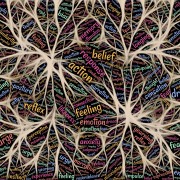Benefits of Support Groups
When dealing with difficult things in life it can often feel as if we are alone, that we are the only ones experiencing a particular situation, or that no one understands. Finding people who have similar experiences and can understand what we are going through can become a life-line. Support groups are one way to find people with similar experiences, and provides the opportunity to share and discuss both personal challenges and celebrations.
Community groups are based on the core idea that talking about the things that are bothering you has the potential to help clarify them and put them into perspective.
Orchard Senior Living understands the benefits of support groups and is pleased to announce a new simultaneous support group both for people living with dementia and their care partners in the Atlanta area. The group will be facilitated by volunteer’s with experience supporting neurodegenerative change. The early onset dementia support group “You & Me” will begin on August 7th and take place every Wednesday morning from 9:45 – 11:00 am. (Additional Event Information)
5 Benefits Of Support Groups
1) Talk About Life Changes In A Non-judgmental Space
Support groups must provide a safe space for people to share their experiences without feeling judged. This allows each participant to feel validated and supported by the facilitator and the group. Feeling validated and free to share, in a setting that is supportive and open, can be the first step in moving forward into positive opportunities and reducing stress.
- Facilitators will guide the conversation and provide resources
- Non- judgmental gatherings allow open transformational sharing
- Agreed to ground rules include confidentiality
2) Sharing Coping Strategies
A support group can provide new ideas for coping and compensatory strategies. A trained facilitator as well as group participant personal stories offer creative “tried and true” ideas. Groups are a good place to process and practice new ways of doing things.
- Having a place to share past experiences
- Becoming aware of personal patterns
- Learning to manage thoughts and emotion
- A practice ground for “rewriting” your story
- Exploring new skills that can create desired changes in life
3) Empowerment
We all want to live an empowered life. Support groups can help us identify our abilities and the right kind of support we need to be able to live a confident and content life.
- Assists participants in discovering what they are still capable of doing
- Identifying the right kind of support that someone may need or is willing to try
- Connecting, encouraging, and inspiring one another
- Celebrating achievements of the participants
4) Reduce Loneliness and Isolation
Loneliness and Isolation have been identified as a major concern for care partners and people living with dementia. The common perceptions of loss and limited abilities create experiences of separation and loss of relationships. Many people living with dementia become isolated because others do not know how to stay connected with them or because the person living with dementia does not want to feel judged. In each of these scenarios, people begin to step away from one another.
- Knowing there are other people experiencing similar things
- Forming a community
- Feeling connected
- Feeling understood
5) Coping With Grief and Loss
Helping cope with grief and loss of:
- Independence or lifestyle
- Abilities
- Living situations
- Changing relationships
- Concerns for the future
Grief and loss are very real experiences for people living with dementia and their care partners. A support group is a good place for them to be able to process these feelings and move to a healthier and happier life. Orchard Senior Living understands this importance and is here to support our Atlanta area residents with a new simultaneous support group both for people living with dementia and their care partners. Learn more about this new program here.






